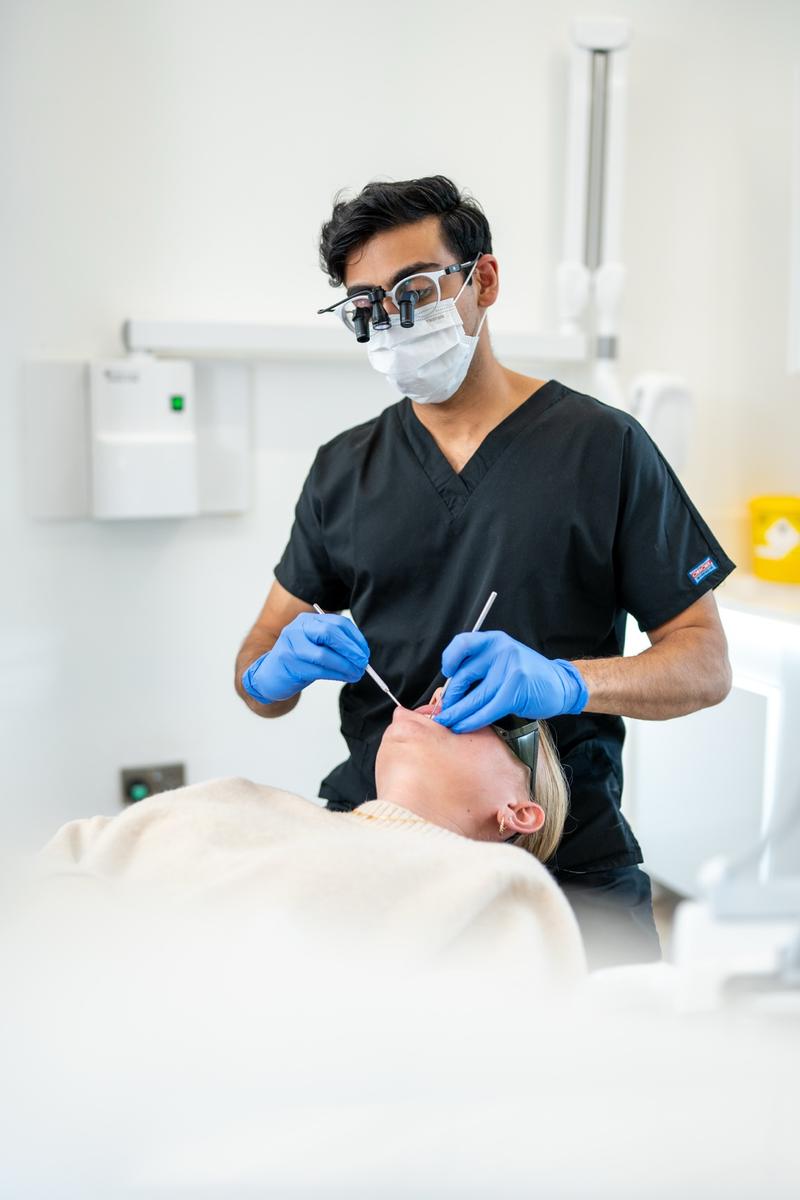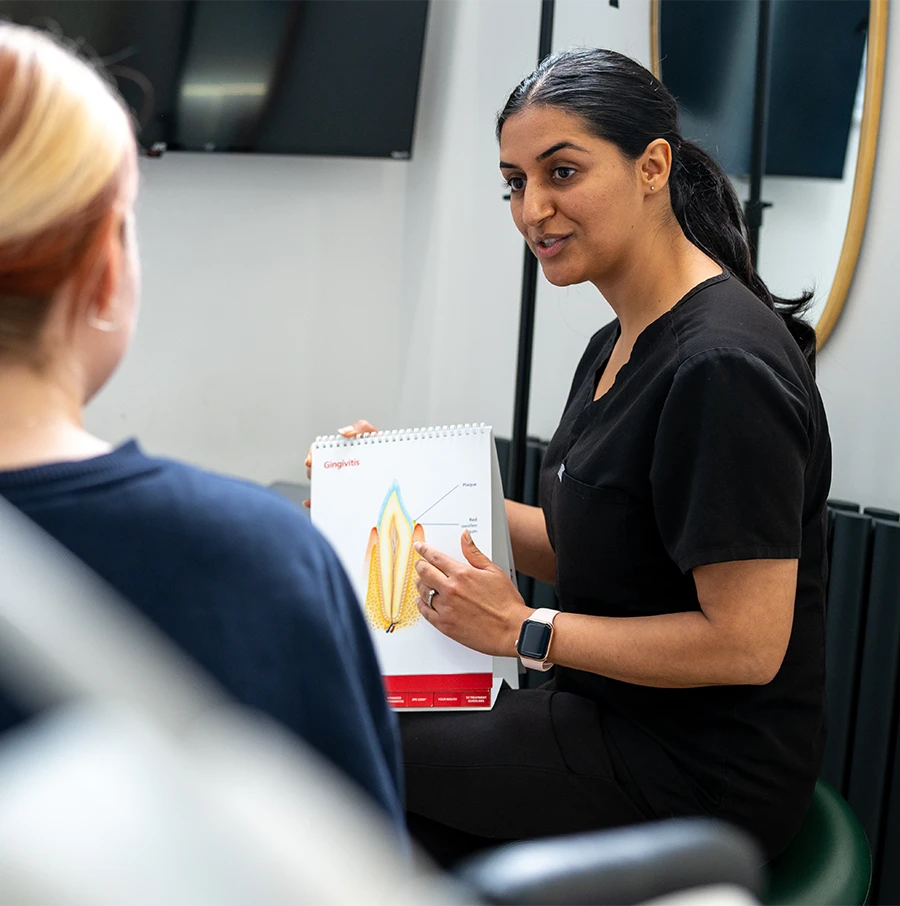
Mouth cancer screening in Kettering
Comprehensive screening as part of your routine dental care
Early awareness for peace of mind
Supportive, caring team focused on your wellbeing
Mouth cancer screening at a glance

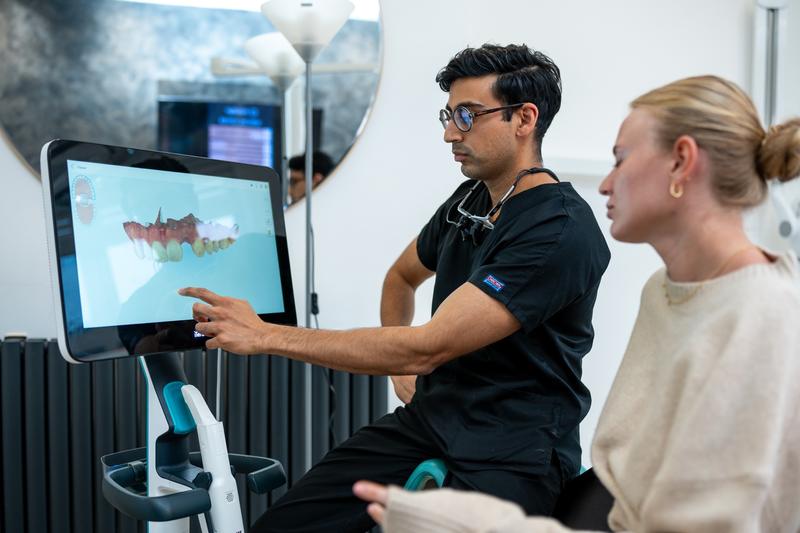
Various forms of mouth cancer affect thousands of people every day. Screening is a proven way to detect signs early and improve successful recovery rates. Mouth cancer screening is an effective way to check for abnormalities that may require further medical investigation.
.png)
We can potentially reduce the impact of oral cancer through screening and early detection. Every time you come in for a routine appointment or dental treatment, your dentist will perform a brief inspection of your face, neck and mouth.
They’ll look for any unusual lumps, red or white patches, or other changes that could indicate a problem, often before you notice any symptoms yourself.
I have more questions before i book
Frequently asked questions about mouth cancer screening in Kettering
How often should I have a mouth cancer screening?
Screening is usually part of every routine dental check-up, which we recommend every six months or as advised by your dentist.
Is the screening painful?
No, the screening is quick, comfortable and non-invasive.
What if something abnormal is found?
If your dentist notices anything concerning, they will discuss next steps with you, which may include referral for further tests.
Can I ask for a mouth cancer screening even if I’m not due a check-up?
Yes, you can request screening anytime during your visit or book an appointment specifically for this.
Does mouth cancer screening cover other oral health issues?
While screening focuses on signs of cancer, your dentist also checks overall oral health during your appointment.
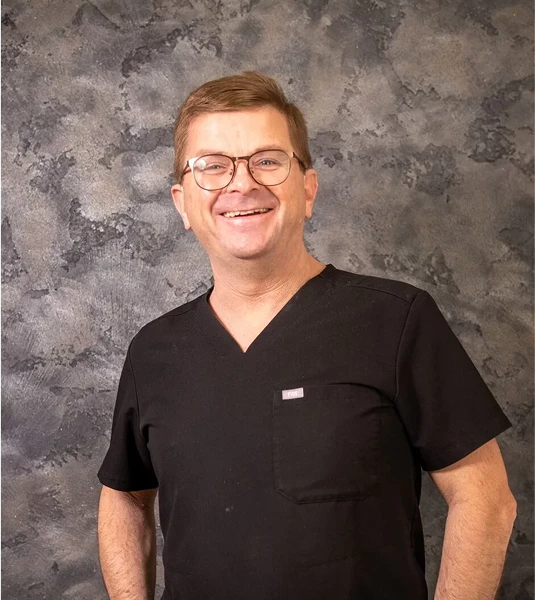
Ready to book your dental check-up in Kettering?
Your mouth cancer screening is included as part of our thorough dental exams. Schedule your appointment with Kettering Dental & Implant Centre today and take a proactive step towards maintaining your oral health.


















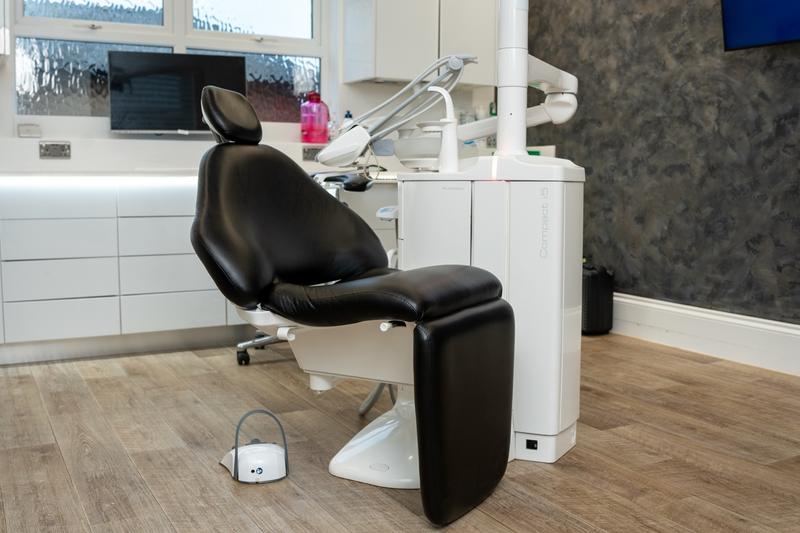
.png)

.png)

